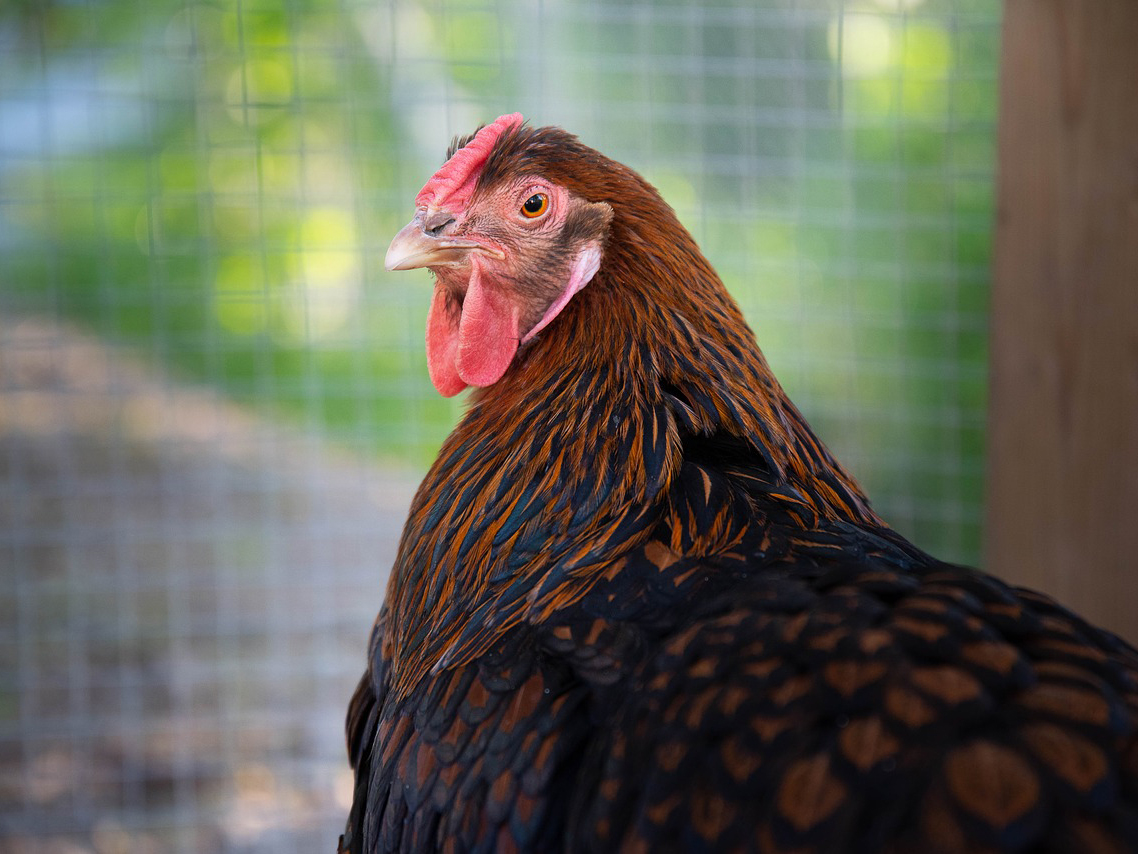Backyard Chickens: A Compre-hen-sive Guide
While many people are content with a pet dog or cat, others may seek less traditional animal friends. For those looking for more exotic pets, chickens can offer not only companionship but also benefits such as egg production, soil fertilization, and educational opportunities to help forge the connection between farm and table.
 Dr. Ashley Navarrette, a clinical assistant professor at the Texas A&M College of Veterinary Medicine & Biomedical Sciences, says that chickens are quite intelligent and can even be trained. They are very food motivated and can even be taught to complete agility courses, though this requires a lot of time and patience.
Dr. Ashley Navarrette, a clinical assistant professor at the Texas A&M College of Veterinary Medicine & Biomedical Sciences, says that chickens are quite intelligent and can even be trained. They are very food motivated and can even be taught to complete agility courses, though this requires a lot of time and patience.
Chickens are often well-suited to life in suburban or semi-suburban environments. They require about 2-3 square feet per chicken inside their coop, with an additional minimum of 8 square feet of outside access.
Potential owners should be aware that even if they have the space, their property may not always be the right place to keep chickens. They also should verify how many chickens their city allows them to keep before adopting.
“Look into your local ordinances or regulations within your home owners association before considering acquiring a chicken or multiple chickens as a pet or backyard project,” said Navarrette. “Also understand that chickens can live up to 8 years and, therefore, are a long-term commitment.”
Navarrette says that while they can be kept as solitary pets, chickens are a social species and are best kept in groups. Owners of multiple chickens should be wary of overcrowding, which can lead to stress and conflict.
“As with any group of animals, there will be social dynamics and there will be an established hierarchy,” she said. “There is usually a dominant hen and subsequent ‘pecking order’ below. Males will also fight for the top spot. One must be careful in regard to housing roosters, as they can be aggressive, loud, and against many city ordinances.”
Owners must also be wary of interactions with other species, as many dogs, cats, ferrets, and larger reptiles will see chickens as prey. Navarrette says interactions between chickens and other pets should be limited and always supervised.
“Children should also be taught appropriate behavior around chickens and handling, not only for the safety of the chicken but also the child,” Navarrette said. “It is also important to note that chicken feces can harbor salmonella and it can be present on the wings, feet, etc. Salmonella can pose a public health risk, particularly to children. All individuals handling the chickens should appropriately wash their hands afterwards.”
Navarrette says that most chickens require minimal veterinary care and are usually treated as issues arise. Health issues can be largely avoided with appropriate care.
Most commercial chickens are vaccinated for Marek’s Disease before 1-2 weeks of age, but unless an owner intends to show their chickens or there is a disease outbreak within a flock, additional vaccinations are uncommon.
To keep chickens in their best health, owners should feed their birds a diet based on their stage of life. Their diet can also be supplemented by allowing chickens to forage in dirt or grass, which is a natural behavior.
“Appropriate diets can be found at feed stores, and it’s best to stick with those from nationally recognized brands, as they tend to have the greatest amount of research behind them and are appropriately balanced,” Navarrette said. “It is best to avoid breads/starches, chocolate, onions, caffeine, avocado, and excess salt, as these can be harmful to chickens and other bird species. Be sure to research toxic plants in your backyard as well.”
Although many individuals might consider chickens to be more livestock than domestic pet, they can offer the benefits of food production while still providing companionship to make your days a little more sunny side up.
Pet Talk is a service of the College of Veterinary Medicine & Biomedical Sciences, Texas A&M University. Stories can be viewed on the web at vetmed.tamu.edu/news/pet-talk. Suggestions for future topics may be directed to editor@cvm.tamu.edu.


